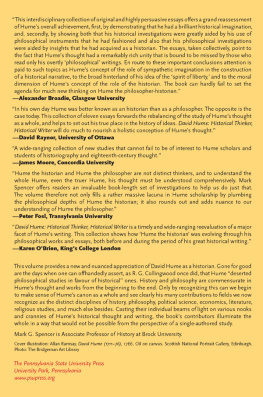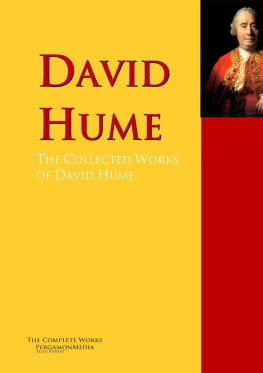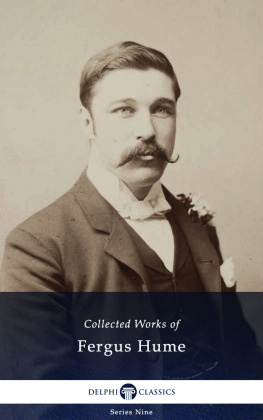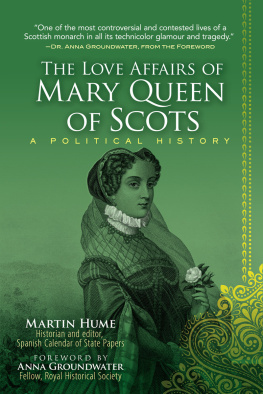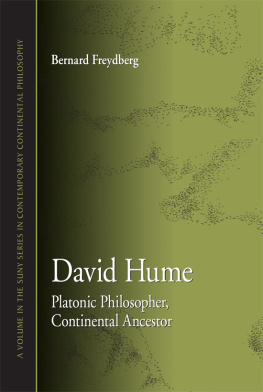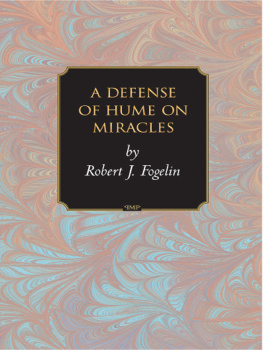Philip IV at the age of 55. From a portrait by Valazquez in the National Gallery, London.
Philip IV at the age of 55.
From a portrait by Valazquez in the National Gallery, London.
The Court of
Philip IV.
SPAIN IN DECADENCE
BY
MARTIN HUME
EDITOR OF THE CALENDARS OF SPANISH STATE PAPERS
(PUBLIC RECORD OFFICE)
LECTURER IN SPANISH HISTORY AND LITERATURE
PEMBROKE COLLEGE, CAMBRIDGE.
Vuestras augustisinas Soberanias vivan, O GRAN
FELIPE, inclitamente triunfantes, gravadas en los Anales
de la Fama, pues sois slida columna y mobil Atlante de
la Fe, unica defensa di la iglesia, y bien universal de
vuestras invencibles reinos
LONDON
EVELEIGH NASH
1907
PREFACE
"I lighted upon great files and heaps of papers and writings of all sorts.... In searching and turning over whereof, whilst I laboured till I sweat again, covered all over with dust, to gather fit matter together ... that noble Lord died, and my industry began to flag and wax cold in the business."
Thus wrote William Camden with reference to his projected life of Lord Burghley, which was never written; and the words may be applied not inappropriately to the present book and its writer. Some years ago I passed many laborious months in archives and libraries at home and abroad, searching and transcribing contemporary papers for what I hoped to make a complete history of the long reign of Philip IV., during which the final seal of decline was stamped indelibly upon the proud Spanish empire handed down by the great Charles V. to his descendants. I had dreamed of writing a book which should not only be a social review of the period signalised by the triumph of French over Spanish influence in the civilisation of Europe, but also a political history of the wane and final disappearance of the prodigious national imposture that had enabled Spain, aided by the rivalries between other nations, to dominate the world for a century by moral force unsupported by any proportionate material power.
The sources to be studied for such a history were enormous in bulk and widely scattered, and I worked very hard at my self-set task. But at length I, too, began to wax faint-hearted; not, indeed, because my "noble Lord had died"; for no individual lord, noble or ignoble, has ever done, or I suppose ever will do, anything for me or my books; but because I was told by those whose business it is to study his moods, that the only "noble Lord" to whom I look for patronage, namely the sympathetic public in England and the United States that buys and reads my books, had somewhat changed his tastes. He wanted to know and understand, I was told, more about the human beings who personified the events of history, than about the plans of the battles they fought. He wanted to draw aside the impersonal veil which historians had interposed between him and the men and women whose lives made up the world of long ago; to see the great ones in their habits as they lived, to witness their sports, to listen to their words, to read their private letters, and with these advantages to obtain the key to their hearts and to get behind their minds; and so to learn history through the human actors, rather than dimly divine the human actors by means of the events of their times. In fact, he cared no longer, I was told, for the stately three-decker histories which occupied half a lifetime to write, and are now for the most part relegated, in handsome leather bindings, to the least frequented shelves of dusty libraries.
I therefore decided to reduce my plan to more modest proportions, and to present not a universal history of the period of Spain's decline, but rather a series of pictures chronologically arranged of the life and surroundings of the "Planet King" Philip IV.that monarch with the long, tragic, uncanny face, whose impassive mask and the raging soul within, the greatest portrait painter of all time limned with merciless fidelity from the King's callow youth to his sin-seared age. I have adopted this method of writing a history of the reign, because the great wars throughout Europe in which Spain took a leading part, under Philip and his successor, have already been described in fullest details by eminent writers in every civilised language, and because I conceive that the truest understanding of the broader phenomena of the period may be gained by an intimate study of the mode of life and ruling sentiments of the King and his Court, at a time when they were the human embodiment, and Madrid the phosphorescent focus, of a great nation's decay.
The ground was practically virgin. John Dunlop, three-quarters of a century ago, wrote a stolid history of the reign, mainly concerned with the Spanish wars in Germany, Flanders, and Italy. But that was before the archives of Europe were accessible; and, creditable as was Dunlop's history for the time in which it was written, it is obsolete now. The Spanish reproduction in recent years, of seventeenth-century documents, for the most part unknown in England, has added much to recent information; whilst numerous original manuscripts, and old printed narratives and letters of the time, in Spanish, English, and French, have also provided ample material for the embodiment in the text of first-hand descriptions of events. The book as it stands is far less ambitious than that originally projected; but it contains much of the contemporary matter which would have provided substance for the wider history; and though it is limited in its scope, it may nevertheless render the important period it covers human and interesting to ordinary readers who seek intellectual amusement, as well as intelligible to students who read for information alone.
The book"a poor thing, but mine own"owes nothing to the labours of previous English historians, except that in describing the Prince of Wales' visit to Madrid I have referred to two documents published by the Camden Society under the editorship of the late Dr. Gardiner. With these exceptions the material has been sought in contemporary unpublished manuscripts and printed records and letters, in most cases now first utilised for the purpose. Whatever its faults may beand doubtless the critical microscope may discover manyit is the only comprehensive history of Philip IV. and the decadent society over which he reigned that modern research has yet produced. May good fortune follow it; for, as the Bachiller Carasco sagely said: "No hay libra tan malo que no tenga algo bueno," and I hope that in this book, at least, the "good" will be held to outbalance the "bad."
MARTIN HUME.
LONDON, October 1907
CONTENTS
INTRODUCTORYPHILIP'S BAPTISM, 1605THE ENGLISH EMBASSYEXALTED RELIGIOUS FEELINGDEDICATION OF PHILIP'S LIFE TO THE VINDICATION OF ORTHODOXYSTATE OF SPAINEFFECTS OF LERMA'S POLICYPOVERTY OF THE COUNTRYEXPULSION OF THE MORISCOSPHILIP'S CHILDHOOD AND YOUTHHIS BETROTHALFALL OF LERMATHE PRINCE AND OLIVARESDEATH OF PHILIP III.
ACCESSION OF PHILIP IV.OLIVARES THE VICE-KINGCONDITION OF THE COUNTRYMEASURES ADOPTED BY THE NEW KINGRETRENCHMENTMODE OF LIFE OF PHILIP AND HIS MINISTERPHILIP'S IDLENESSHIS APOLOGIADISSOLUTENESS OF THE CAPITALVILLA MEDIANATHE AMUSEMENTS OF THE KING AND COURTA SUMPTUOUS SHOWARRIVAL OF THE PRINCE OF WALES IN MADRIDHIS PROCEEDINGSOLIVARES AND BUCKINGHAM
STATE ENTRY OF CHARLES INTO MADRIDGREAT FESTIVITIESHIS LOVE-MAKINGATTEMPTS TO CONVERT THE PRINCETHE REAL INTENTION OF OLIVARESHIS CLEVER PROCRASTINATIONCHARLES AND BUCKINGHAM LOSE PATIENCEHOWELL'S STORY OF CHARLES AND THE INFANTATHE FEELING AGAINST BUCKINGHAMANXIETY OF KING JAMESHIS CORRESPONDENCE WITH "BABY AND STEENIE"CHARLES DECIDES TO DEPARTFURTHER DELAYTHE DIPLOMACY OF OLIVARESBUCKINGHAM AND ARCHY ARMSTRONGDEPARTURE OF CHARLESHIS RETURN HOME, AND THE ENGLISH DISILLUSION


